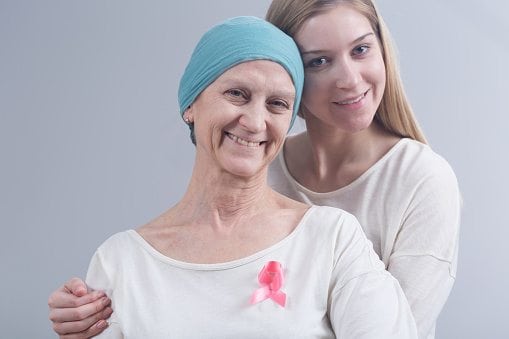<< Back
HER-2 Gene: This Aggressive Breast Cancer Requires Targeted Treatment

November 11, 2019
Click here for a callback from a breast health nurse navigator.
All breast cancers are not structured, and therefore not treated, the same, which is why doctors test tissue removed during biopsies to determine the type and stage of the disease.
All tissue is also tested for what is called the HER-2 gene, according to Dr. Stacy Nerenstone, a breast oncologist with the Hartford HealthCare Cancer Institute who is particularly interested in treating patients who test positive for what is a more aggressive form of breast cancer.
“HER-2 positive breast cancer affects 15 percent of patients,” she said. “Women with both early- and later-stage disease need to be treated with an agent that is directly targeted to that genetic marker.”
She added that all but the very smallest tumors need to be treated with chemotherapy as well as the HER-2 directed agents. Patients who have larger tumors (measuring more than 2 cm) or positive lymph nodes under their arm at the time of diagnosis may be offered this type of treatment before surgery.
“We treat these patients differently as HER-2 positivity is associated with much more rapidly growing cancers,” Dr. Nerenstone said. “Ironically, however, these patients also almost always respond to the chemotherapy as well as the treatment directed at the HER-2 marker.”
She noted a “very exciting” study released recently shows that when HER-2 targeted treatment is given before surgery, the patient’s response can be analyzed at the time of surgery.
“For patients who have no residual disease, Herceptin, which targets the HER-2 marker, can be given with or without the newer drug Perjeta to complete a year of treatment,” she said. “However, for patients with cancer that has persisted, we can improve the current rates by 50 percent by giving one of the newer HER-2 targeting agents such as Kadcyla to complete a year of treatment.”
The latter drug – which also has a generic form called Ado-trastuzumab emtansine, is an antibody drug combination of Trastuzumab and the cytotoxic agent Emtansine. It can be given to patients for a complete year of treatment, Dr. Nerenstone explained.
“It’s wonderful to have the option of knowing earlier if a patient is responding as we hope, or if we need to regroup with another approach. It improves a patient’s chance of ridding themselves of the disease,” she said.
Click here for a callback from a breast health nurse navigator.
For more information on breast cancer treatment at the Hartford HealthCare Cancer Institute, click here.